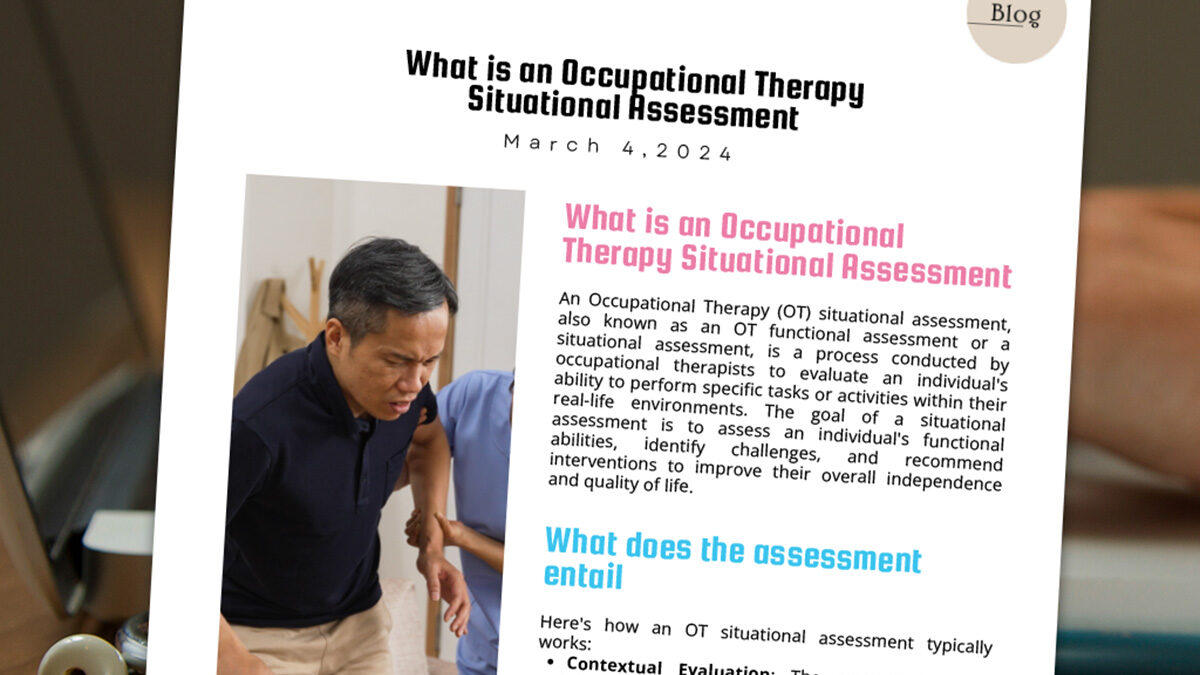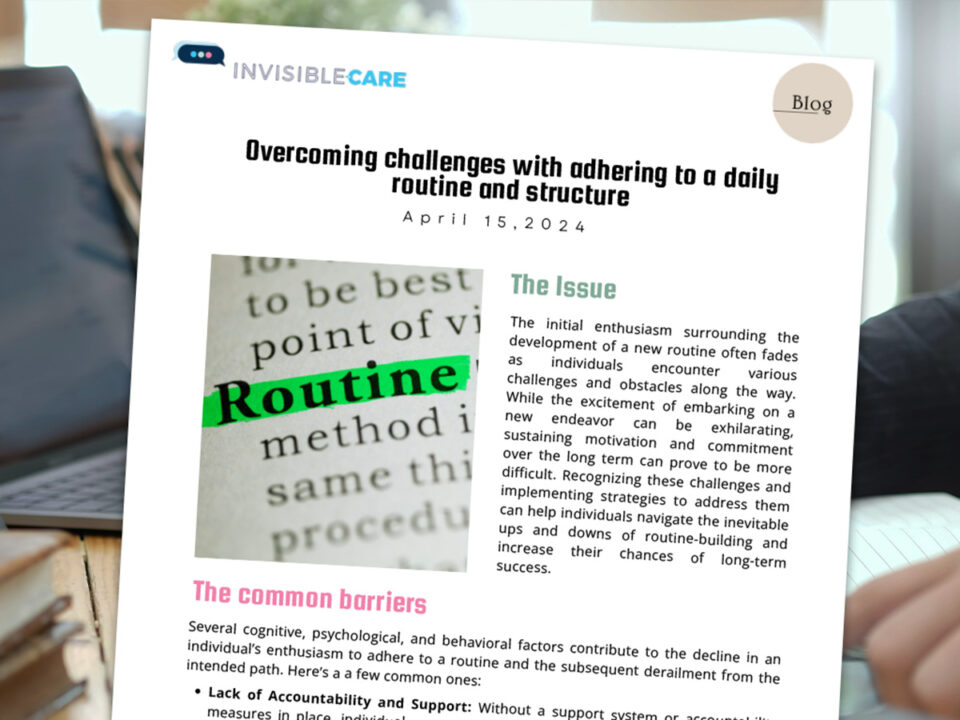
Remote Solutions for Homecare Challenges
February 19, 2024
Invisible-care Inc. Awarded Corporate Vision Canadian Business Award
March 13, 2024

What is an Occupational Therapy Situational Assessment
An Occupational Therapy (OT) situational assessment, also known as an OT functional assessment or a situational assessment, is a process conducted by occupational therapists to evaluate an individual’s ability to perform specific tasks or activities within their real-life environments. The goal of a situational assessment is to assess an individual’s functional abilities, identify challenges, and recommend interventions to improve their overall independence and quality of life.
What does the Assessment Entail
Here’s how an OT situational assessment typically works:
- Contextual Evaluation: The assessment takes place in the individual’s home, work, school, or any other relevant setting to understand how their surroundings impact their ability to perform specific tasks.
- Task Analysis: The occupational therapist observes and analyzes the individual as they perform various tasks that are relevant to their daily life, work, or specific goals. These tasks can range from self-care activities (e.g., dressing, grooming) to instrumental activities (e.g., cooking, using public transportation) or work-related tasks.
- Identification of Challenges: During the assessment, the therapist notes any difficulties, limitations, or barriers the individual faces while performing the tasks. These challenges can be related to physical, cognitive, emotional, or environmental factors.
- Strengths and Abilities: The therapist also assesses the individual’s strengths, skills, and capabilities that contribute to their ability to perform tasks successfully.
- Environmental Factors: The therapist evaluates how the individual’s environment, such as home layout, work setup, or available resources, influences their ability to function independently.
- Recommendations and Interventions: Based on the assessment findings, the occupational therapist provides personalized recommendations and interventions. These recommendations can include strategies to improve task performance, adaptive techniques, assistive devices, modifications to the environment, and occupational therapy sessions focused on skill development.
- Goal Setting: Collaboratively with the individual, the occupational therapist sets goals that target specific areas of improvement and work towards enhancing the individual’s overall functional independence.
- Report and Documentation: The occupational therapist compiles the assessment findings, recommendations, and interventions into a report that can be shared with the individual, their healthcare team, and other relevant parties.
- Follow-Up: Depending on the nature of the assessment, the occupational therapist may conduct follow-up sessions to monitor progress, adjust interventions, and ensure that the individual is making meaningful improvements.
Summary
Overall, an OT situational assessment is a hands-on process that aims to understand an individual’s challenges and strengths within their real-life context. It plays a vital role in tailoring interventions and strategies that empower individuals to overcome limitations and achieve their functional goals.





